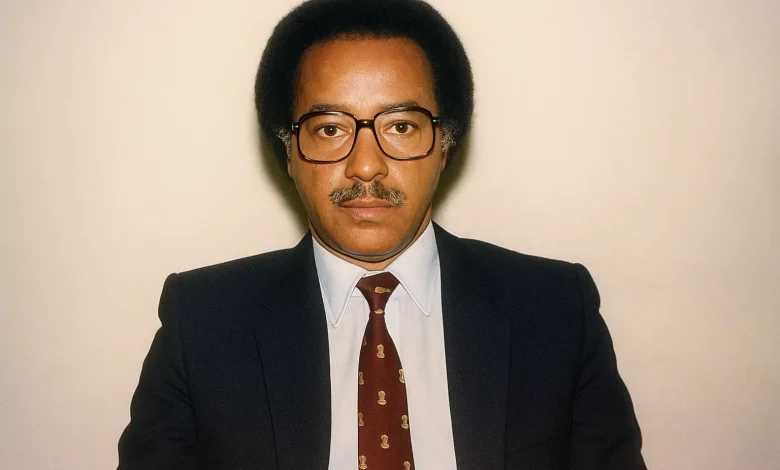Jenner Armour

Jenner Bourne Maude Armour (15 November 1932 – 25 July 2001) was a prominent Dominican barrister, politician, and constitutional figure, best remembered for his service as Acting President of Dominica during the nation’s most turbulent post-independence period and for his role in Parliament as a representative of the Paix Bouche Constituency. Known for his legal acumen and measured statesmanship, Armour made lasting contributions to Dominica’s legal and political architecture.
Legal Education and Early Career
Born in Portsmouth, Dominica, Armour pursued legal studies in the United Kingdom, obtaining a Master of Laws from the University of London in 1959. He was called to the Bar and became a highly respected barrister, practising across the Caribbean in jurisdictions such as Anguilla, Saint Kitts and Nevis, and Trinidad and Tobago. His broad exposure to regional jurisprudence gave him a legal credibility that extended across both civil and constitutional matters, and he soon became one of the Eastern Caribbean’s most sought-after legal minds.
Parliamentary Role and Constituency Representation
Armour entered national politics during a time of great volatility. In the 1980 general elections, he contested and won the Paix Bouche Constituency as an independent candidate, defeating contenders from both the Dominica Labour Party and the Dominica Freedom Party. His win was part of a broader shift in electoral politics, where independent voices and DFP candidates capitalised on the public’s disillusionment with the post-independence leadership crisis. He remained active in Parliament throughout the 1980s, eventually affiliating with the Dominica Freedom Party, where he contributed extensively to legislative debate and policy formulation.
While in Parliament, Armour’s legal training allowed him to play a critical behind-the-scenes role in reviewing legislation and guiding constitutional interpretation. Though not always front-facing in government, his influence was unmistakable during Cabinet deliberations and legal reviews.
Acting President and Constitutional Stabilizer
In 1979, following the resignation and subsequent flight of President Frederick Degazon amid national unrest and a constitutional stalemate, Armour was called upon to serve as Acting President of Dominica. He assumed this position on 21 June 1979, at a time when Dominica was facing civic protests, political breakdown, and uncertainty about the rule of law. His brief tenure, lasting until February 1980, provided constitutional legitimacy during a transitional period. Armour was widely credited for managing the state with restraint and preserving the integrity of the presidency at a time of profound national vulnerability.
He eventually handed over the presidency to Aurelius Marie, who was elected as the next official Head of State. Armour’s ability to navigate legal ambiguity and uphold the Constitution made him a respected stabilizing force during one of Dominica’s most fragile moments.
Attorney General and Later Contributions
After his stint as Acting President, Armour continued to serve in high-level government positions. From 1990 to 1995, under the administration of Prime Minister Mary Eugenia Charles, he served as Attorney General of Dominica. In this role, he was responsible for legal oversight of government decisions, reviewing legislation, and safeguarding the legal framework of the island’s institutions.
Armour’s contributions during this period helped shape reforms in judicial procedures, improved legal infrastructure, and bolstered public confidence in democratic processes. He was often regarded as the DFP’s senior constitutional advisor, even after stepping away from elective office.
Final Years and Legacy
Jenner Armour passed away on 25 July 2001 at the age of 68. His death marked the end of a public life marked by calm leadership, judicial excellence, and institutional loyalty. He is remembered as a national figure who moved seamlessly between the courtroom and the chamber of Parliament, anchoring his public service in principle and propriety.
His service to the Paix Bouche Constituency, his legal standing throughout the Eastern Caribbean, and his crucial presence during Dominica’s 1979 constitutional crisis continue to earn him a place in the country’s modern political and legal heritage. His memory lives on not only through official records but in the quiet respect of those who knew the depth of his public contributions.




